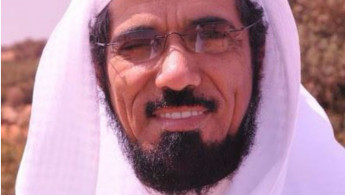Saudi government prosecutors demand death penalty for cleric who defended relations with Qatar
Awdah was imprisoned a year ago, as part of the powerful Crown Prince Mohammed bin Salman's brutal crackdown on dissent in the kingdom, after he criticised the kingdom's blockade of Gulf neighbour, Qatar.
The Public Prosecution, which represents the Saudi government, have levelled 37 counts against Awdah and called for the death penalty, reported local daily Okaz on Tuesday.
Awdah is the assistant secretary-general of the International Union of Muslim Scholars.
The organisation, which boasts a diverse membership of Muslim scholars from around the world representing various Muslim denominations and is based in Doha.
It is listed exclusively by Saudi Arabia, Egypt, the UAE and Bahrain as a terrorist group, a label critics say is heavily politicised and unjustified.
These same four countries have imposed a blockade on Qatar since June 2017, accusing it of supporting terrorism.
Qatar denies the allegations and says the Saudi-led bloc is attacking its sovereignty over its independent foreign policy.
Awdah was arrested in September 2017 after he expressed support for Saudi reconciliation with Qatar at the start of the Saudi-led blockade from Arab neighbours.
Salman al-Awdah's son, Abdallah, who lives in the US, earlier in August said his father would be subjected to a secret trial.
"A prison officer told me about a secret trial, of which my father does not know the details, charges or location," Abdallah tweeted.
"No one is allowed to attend this trial and it seems there is no real legal process. We do not trust sudden secret trials that take place without a lawyer, independent bodies or clear charges."
He added that his father said in a phone call that authorities had suddenly transferred him from a prison in Jeddah to another in the capital Riyadh.
Twitter Post
|
In January, Human Rights Watch said Awdah had not been questioned or charged since his arrest and that he had been held in solitary confinement.
The cleric, known for advocating reforms in recent years, had millions of followers on Twitter.
Riyadh has convicted hundreds of terror suspects in secret tribunals without legal representation, according to HRW.
Saudi Arabia expelled Canada's ambassador, recalled its own envoy and froze all new trade and investments after Ottawa publicly demanded the "immediate release" of rights campaigners jailed in the kingdom.





 Follow the Middle East's top stories in English at The New Arab on Google News
Follow the Middle East's top stories in English at The New Arab on Google News
![The UAE is widely suspected of arming the RSF militia [Getty]](/sites/default/files/styles/image_330x185/public/2024-11/GettyImages-472529908.jpg?h=69f2b9d0&itok=Yauw3YTG)
![Netanyahu furiously denounced the ICC [Getty]](/sites/default/files/styles/image_330x185/public/2024-11/GettyImages-2169352575.jpg?h=199d8c1f&itok=-vRiruf5)
![Both Hamas and the Palestinian Authority welcomed the ICC arrest warrants [Getty]](/sites/default/files/styles/image_330x185/public/2024-11/GettyImages-2178351173.jpg?h=199d8c1f&itok=TV858iVg)